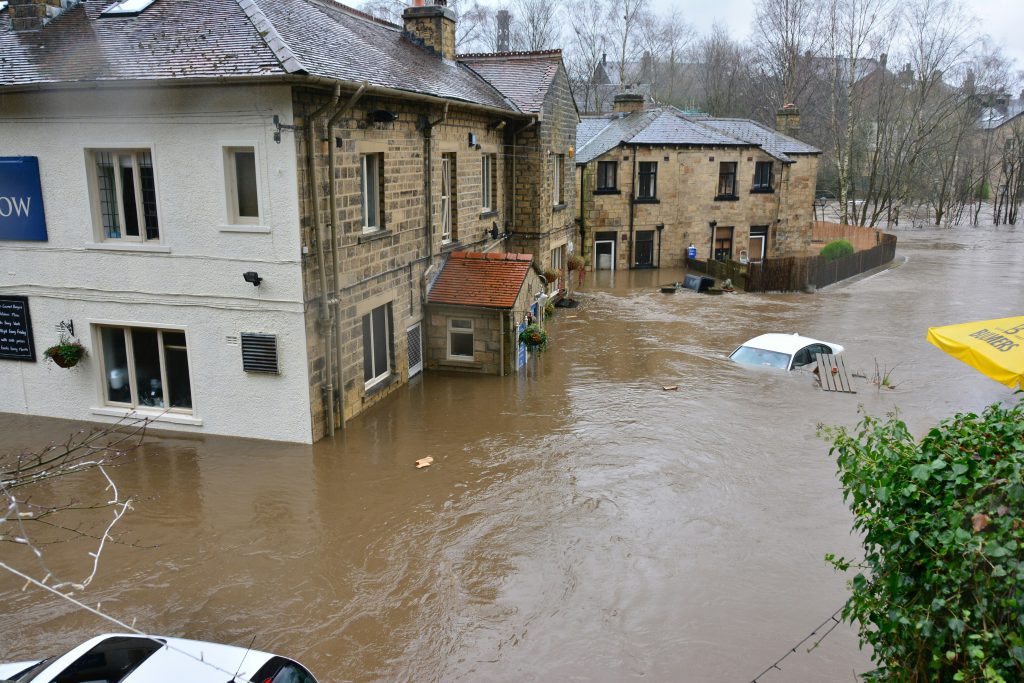
Unravelling the Fabric of Climate Change: A Socioeconomic Perspective
Article by Luliang Tian
Photo by Chris Gallagher on Unsplash
In July 2021, after severe rainfall, the R valley in western Germany was hit by an enormous flood. Water gushed through the villages, killing over 100 people and damaging thousands of houses. Extreme weather events are occurring more frequently around the world, not just in Germany. Rising sea levels and heavy rainfall caused devastating floods. There are already over 20 million climate refugees worldwide, and if we don’t take climate change seriously, there could be much more.
Climate change is a global crisis that’s intrinsically tied to our way of life, and it’s imperative to understand the profound connection between climate change and our social and economic structures. Climate change isn’t just an isolated issue; it’s entwined with the very threads of our social and economic systems. The root causes and exacerbating factors lie deep within our society and economy. To truly grasp the gravity of climate change, we must unravel the web of interactions that link it to our social and economic structures.
The Paradox of Economic Growth
For decades, the pursuit of economic growth has been the cornerstone of our society. However, this growth often comes at the expense of the environment. Capitalism cannot control the power generated through excessive consumption which changes the climate and eliminates the conditions of human life (Urry, J., 2009). The emphasis on GDP and profit margins encourages resource consumption and carbon emissions. Global warming is caused, at least in part, by human activities that have resulted in significantly increased amounts of carbon emissions (IPCC, 2007). The paradox lies in the fact that we celebrate economic prosperity while simultaneously contributing to our planet’s decline.
Consumerism and the Carbon Footprint
Our consumer-driven culture has an enormous carbon footprint. The incessant demand for new products fuels industries that contribute to climate change. Fast fashion is a prime example. The need for the latest trends at low prices leads to exploitative labour practices and excessive waste, exacerbating environmental problems. The fast fashion industry contributes significantly to climate change. A staggering 84% of clothing in the USA ends up in landfills each year, exacerbated by the excessive consumption of fast fashion (Evans, 2021). Moreover, the industry’s global greenhouse gas emissions for a year are equivalent to the entire aviation industry worldwide (Evans, 2021). Despite the well-documented ethical and environmental issues, fast fashion continues to thrive.
The Socioeconomic Impact of Climate Change
The sector most vulnerable to climate change is agriculture. The increases in global temperature and carbon dioxide can cause changes in the frequency and severity of droughts and floods which tend to pose challenges to farmers and food safety. According to a 2011 National Academy of Sciences report, for every degree Celsius the global thermostat rises, there will be a 5 to 15 percent decrease in overall crop production. This may cause two consequences. The first one is the reduction of the income of the populations who heavily depend on agriculture. Or, as farmers battle to stay afloat by adapting to changing conditions, prices are likely to rise and be passed on to consumers. Both of them can cause the dissatisfaction of individuals and even the instability of the economy and society.
In addition, climate change doesn’t discriminate. Its impacts affect various societal groups differently. Vulnerable communities, often with lower socioeconomic status, bear the brunt of climate-related disasters. This reveals an inherent injustice within our social system. Those who contribute the least to climate change suffer the most from it.
What should we do to improve the current situation?
The reform of traditional energy production ways should be seriously considered. Today’s global economy is deeply dependent on oil. Governments can encourage the use of clean energy, like solar energy, sustainable practices and corporate social responsibility. Many businesses are recognizing the need to align profit with ethical and ecological values. This shift is encouraging, as it reflects the potential for positive change within our economic system.
Changing our course requires a shift in societal mindset. We must reevaluate our priorities and values, moving away from conspicuous consumption and constant economic growth as the sole measures of success. Embracing sustainability, social equity, and environmental responsibility should become our new guiding principles.
Reference list:
- Urry, J. (2009), ‘Sociology and Climate Change’, The Sociological Review, 57(s2): 85.
- IPCC, (2007), http://www.ipcc.ch/.
- Evans, E. (2021), ‘Fast Fashion: How Status Anxiety Fuels Exploitation’, https://sites.manchester.ac.uk/global-social-challenges/2021/04/26/fast-fashion-how-status-anxiety-fuels-exploitation/

0 Comments